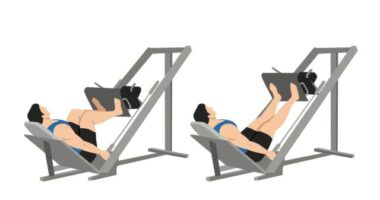Disorders Cure
oi-Amritha K
on May 4, 2022
Flat feet, also known as flatfoot, is a condition where one or both of the feet do not have an arch. This is because the development of arches does not occur during childhood, resulting in flat feet. Usually, flat feet are painless. However, flat feet can also result from an injury or the simple wear-and-tear stresses of ageing.
The alignment of your legs can be altered when you have flat feet, leading to problems with your ankles and knees. However, in most cases, flat feet do not require any treatment unless they are causing you pain [1].
What Causes Flat Feet?
As a child ages, arches form on the feet. In most people, flat feet can be caused due to genes. Some people have high arches, while others have very low or nearly absent arches, causing flat feet. In addition, some people develop flat feet later in life when the condition runs in families. And certain problems increase your risk of flat feet [2].
What Are The Symptoms Of Flat Feet?
Pain in the feet is the most common sign of flat feet, caused by strained muscles and ligaments.
It is most common for pain to occur in the following parts of the body [3]:
- Ankle
- Arch of the foot
- Calf
- Knee
- Hip
- Lower back
- Lower legs
Having flat feet can also cause uneven weight distribution – a person may have difficulty walking or running evenly.
What Are The Risk Factors For Flat Feet?
- Obesity
- Achille’s tendon injuries
- Broken bones
- Rheumatoid arthritis
- Cerebral palsy
- Diabetes
- Down syndrome
- High blood pressure
- Pregnancy
What Are The Types Of Flat Feet?
If flat feet persist after childhood or develop in adulthood, they can cause problems. The types of flatfoot include the following [4]:
- Flexible: Flexible flat feet are most common and develop during childhood or adolescence, affect both feet, and gradually worsen with age. Stretching, tearing, and swelling of the tendons and ligaments in the foot’s arch is common.
- Rigid: People with rigid flat feet have no arches when standing (putting weight on their feet) or sitting (not putting weight on their feet). It often develops during the teen years and worsens with age.
- Adult-acquired (fallen arch): Adult-acquired flat feet (fallen arches) occur when the foot’s arch suddenly drops. The fallen arch causes the foot to turn outward, which can be painful and affect only one foot.
- Vertical talus: The vertical talus, also known as the rocker-bottom foot, is a congenital disability that prevents the formation of arches in babies.
How Are Flat Feet Diagnosed?
Your doctor will examine your feet from the back and front and have you stand on your toes to observe the mechanics of your feet. Your shoe wear pattern may also be examined [5].
If you’re having severe pain in your feet, your doctor may order the following tests:
- X-ray
- CT scan
- Ultrasound
- MRI
What Is The Treatment For Flat Feet?
Unless flat feet cause pain, there is no need for treatment. However, if your flat feet are painful, your doctor might suggest the following [6]:
- Arch supports (orthotic devices): Your doctor might suggest custom arch supports, which are moulded to the contours of your feet, to relieve the pain caused by flat feet – arch supports do not cure flat feet, but they often reduce symptoms.
- Stretching exercises.
- Supportive shoes.
- Physical therapy.
- Surgery: You might also undergo surgery for a problem associated with flat feet, such as a tendon tear or rupture.
Can Flat Feet Be Prevented?
It is often impossible to prevent flat feet. However, proper foot care can sometimes prevent adult flat feet. Therefore, avoiding injury and taking care of your feet is important. If you have diabetes or are pregnant, you may be at a higher risk of developing flat feet, and if you are overweight, you are also at a higher risk [7][8].
Research On Flat Foot By Lovely Professional University
LPU, India, has been working towards developing a new wearable device for early diagnosis of asymmetrical limb loading patterns during walking, standing or any other activity in a weight-bearing position.
The research team have been working on this project for the last one and half years as a part of PhD research of Mr Amber Anand under the guidance of Dr Suresh Mani and Dr Senthil NS Kumar. So far, they have developed a prototype device for the same and currently are working on software development that will also involve machine learning (ML) and artificial intelligence (AI) for a better outcome.
The device also provides an option for healthcare professionals to monitor the activities of their patients anywhere and anytime using the smartphone application that is being developed. The research team expects the telemonitoring function to be helpful in situations like the COVID-19 outbreak when the patient cannot visit the clinic or health care centre.
In such cases, the patient can use the device at their home or work and perform their daily activities, while their data will be continuously fed to the cloud server in real-time, through which their healthcare professionals can access their activity and plan for their prognosis and rehabilitation.
Updates on the device:
The prototype of the DT-walk wearable device is ready. Currently, the research team is working on the software and graphical user interface development. Once the software is ready, the DT-walk will be validated against the gold standard system like the WinTrack platform.
With inputs from the Lovely Professional University research team.
GET THE BEST BOLDSKY STORIES!
Allow Notifications
You have already subscribed
Source:
























